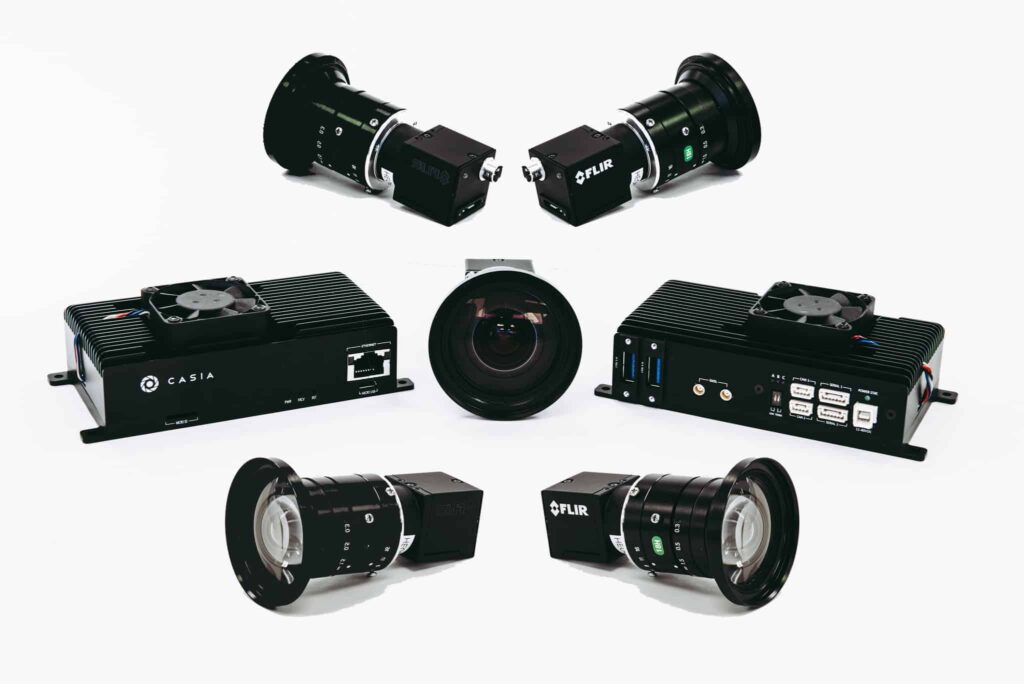

Iris Automation’s Casia drone detect-and-avoid (DAA) system has been selected by Transport Canada as part of a series of trials, conducted by the National Research Council Canada (NRC), that will evaluate the use of various types of DAA technologies to inform future UAS (unmanned aerial system) regulations and standards.
Casia systems use computer vision and machine learning technology to detect unanticipated aircraft encounters and take corrective action to avoid a potential mid-air collision. For the trials, the Casia system will be integrated on a helicopter serving as a surrogate UAS and flight tested against various “intruder” trajectories flown by other NRC aircraft. These real-world encounter scenarios simulate the kinds of encounters that commercial drones face while operating beyond visual line of sight (BVLOS), such as when conducting remote medical supply delivery, search/rescue, and precision agriculture monitoring.
Iris Automation also participates in the US Federal Aviation Administration’s ASSURE program and BEYOND program to advance complex BVLOS UAS operations in the US National Airspace System. As part of the BEYOND Program, Iris has so far partnered with four lead participants – the City of Reno, Kansas Department of Transportation, the University of Alaska Fairbanks (ACUASI) and the Choctaw Nation of Oklahoma. Iris had previously partnered with each of these lead participants in the FAA’s UAS Integration Pilot Program (IPP) which concluded in October 2020.
Iris Automation launched the Canada Pathfinder Program in February 2021 – an all-in-one solution to streamline the complex steps required to achieve BVLOS approvals and experience. Iris Automation partnered with two of Canada’s leading test facilities for support, training and proving BVLOS flight competency – Foremost UAS Test Range in Alberta and UAS Center of Excellence (CED) in Alma, Quebec. The program includes flight training, assistance gaining BVLOS approvals, a BVLOS safety system, engineering and regulatory support, and test center access. The Program is open to any organizations interested in operating BVLOS services inside Canada.
Jon Damush, CEO of Iris Automation, commented: “We are proud to have been selected to be a part of this important demonstration program. Transport Canada continues to take a leading role in establishing the best practices needed for safe unpiloted flights for commercial drones. With so much potential for commercial drone operations in Canadian airspace, Transport Canada understands the opportunity as well as the need for regulations required to integrate RPAS successfully into the airspace environment.”







Related Posts
New Drone Fires Thales Missile in Unmanned Air Combat Milestone
UAS Startup Accelerator Awards 3M in Funding
US Navy Orders Unmanned Tactical Resupply Aircraft